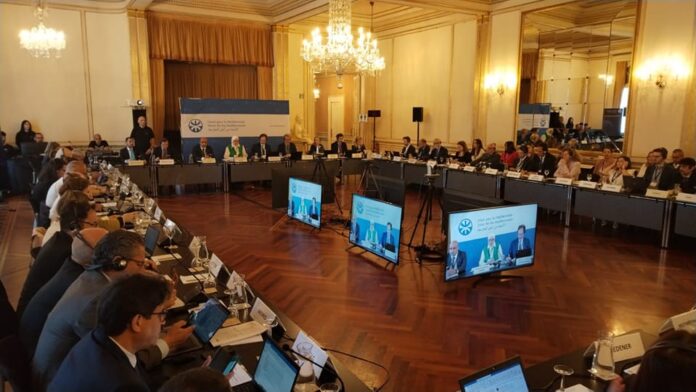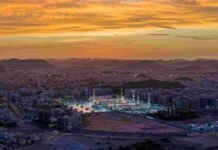Jordan: Amani Al-Azam, the Secretary-General of the Ministry of Energy and Minerals, said on Wednesday that the 2020 Jordanian energy sector strategy announced a goal of raising renewable energy contribution to electricity generation to 31% by 2030.
As per the reports, the statement comes at the Jordanian joint-presidency of the Federation for the Mediate at the opening of the annual meeting of the Union for the Mediate energy platforms, which began operations in the Spanish city of Barcelona yesterday, May 3 2023.
The resolution of Egypt said, “We are” currently reviewing the comprehensive strategy of the energy sector to achieve the new target, working to support the transition projects towards electric transport and green hydrogen production as we begin to walk through the steps technically, legally and strategically required in this area.
The updates stated that Jordan, while pursuing this goal, has taken into account strengthening and strengthening its stability by switching to smart grids, creating projects for electricity storage, and implementing and expanding electricity connectivity projects with neighbouring countries and the world.
It is also said that it is time to maximize the benefit of all tools and technologies available in order to overcome technical challenges by renewable energy.
Azam, Secretary General of the Ministry of Energy, presented the achievements of the energy sector in the country and said that the combined capacities in Jordan from solar and wind energy projects to generate electricity reached about 6 R2 Gigawatts, contributed to the production of about 27% of the total electricity consumed in the kingdom.
She explained that the contribution of renewable energy to total electricity consumption did not exceed 1% until 2014 and gradually increased until it reached what it is today.
As a result of this achievement, Jordan achieved for the year 2022, prepared by the Regional Centre for Renewable Energy and Energy Efficiency, the first place in the region in the proportion of combined capacity of renewable energy sources to generate electricity without considering hydropower, according to the report of the Arab Future Energy Index (AFEX).
The resolution before the meeting announced a Jordanian initiative to prepare integrated technical and economic feasibility studies to establish widely interconnected electricity networks between the nations of the Middle East, North Africa, and Europe.
The immense potential of several countries in the region to generate electricity from renewable energy sources and export it to the EU countries was also emphasized.
In this particular, the resolution called for the study to take into account all the technical and organizational requirements and policies necessary to accelerate interregional interconnection, as well as the cost of the investments needed for the implementation of the interconnection system and the benefits obtained from it.
It is noteworthy that the cost of production and different electrical load patterns in the countries of the region and the positive impact on the environment.
She said that the implementation of such a system would support the transition to a low-carbon energy system and is in line with all of our objectives of the need to achieve security of energy supply at the least cost and in the most environmentally safe means.
The Secretary-General further assured that the General Secretariat would be provided with a copy of the specially prepared concept paper sent earlier. For the General Secretariat in official ways, we hope you find the necessary support to start its implementation for the benefit of all.
The determination of the foundations for the success of the Jordanian initiative, and its most important diversification of energy supply sources, both in terms of places of supply or types of energy.
She said the enormous size and amount of sunlight that floods the Middle East and North Africa every day could provide a significant share of the world’s electricity needs by 2050.
Depending on this quantity, a high-voltage electricity transmission network can be created, which will exploit solar and wind power to generate electricity in the Eastern Arab countries and North Africa and export the surplus to Europe.
It was concluded that although many efforts have been made and many studies have been prepared to reach integrated electricity connectivity between the countries of the Mediterranean, the interconnectivity between our countries remained limited.



